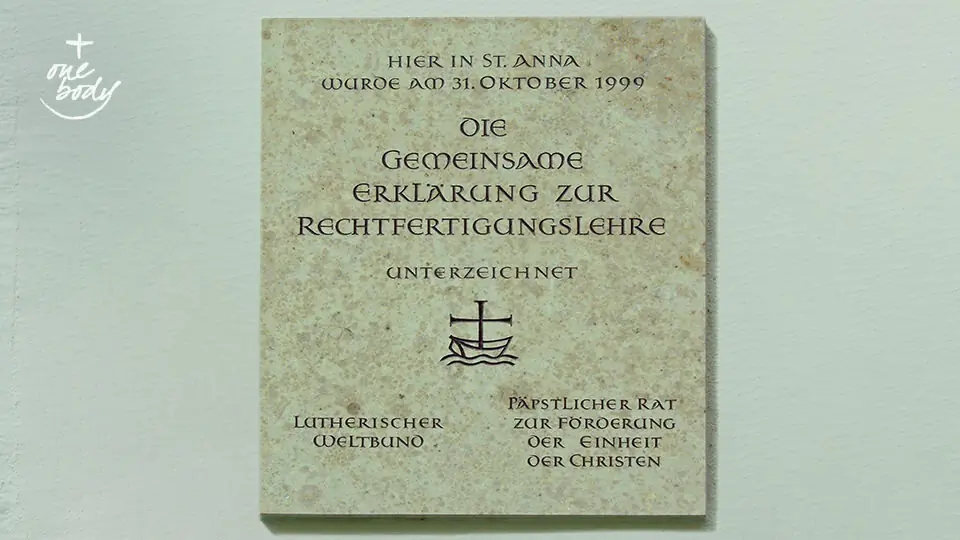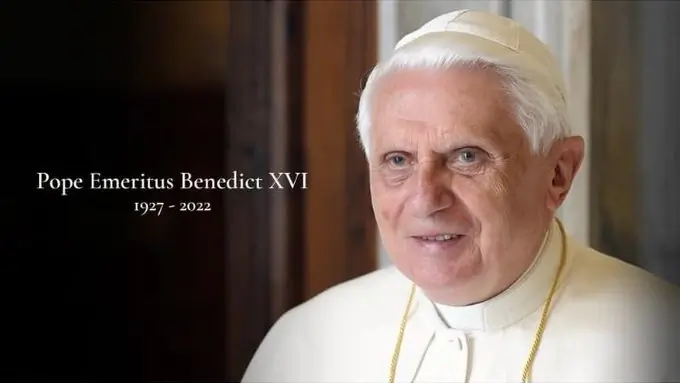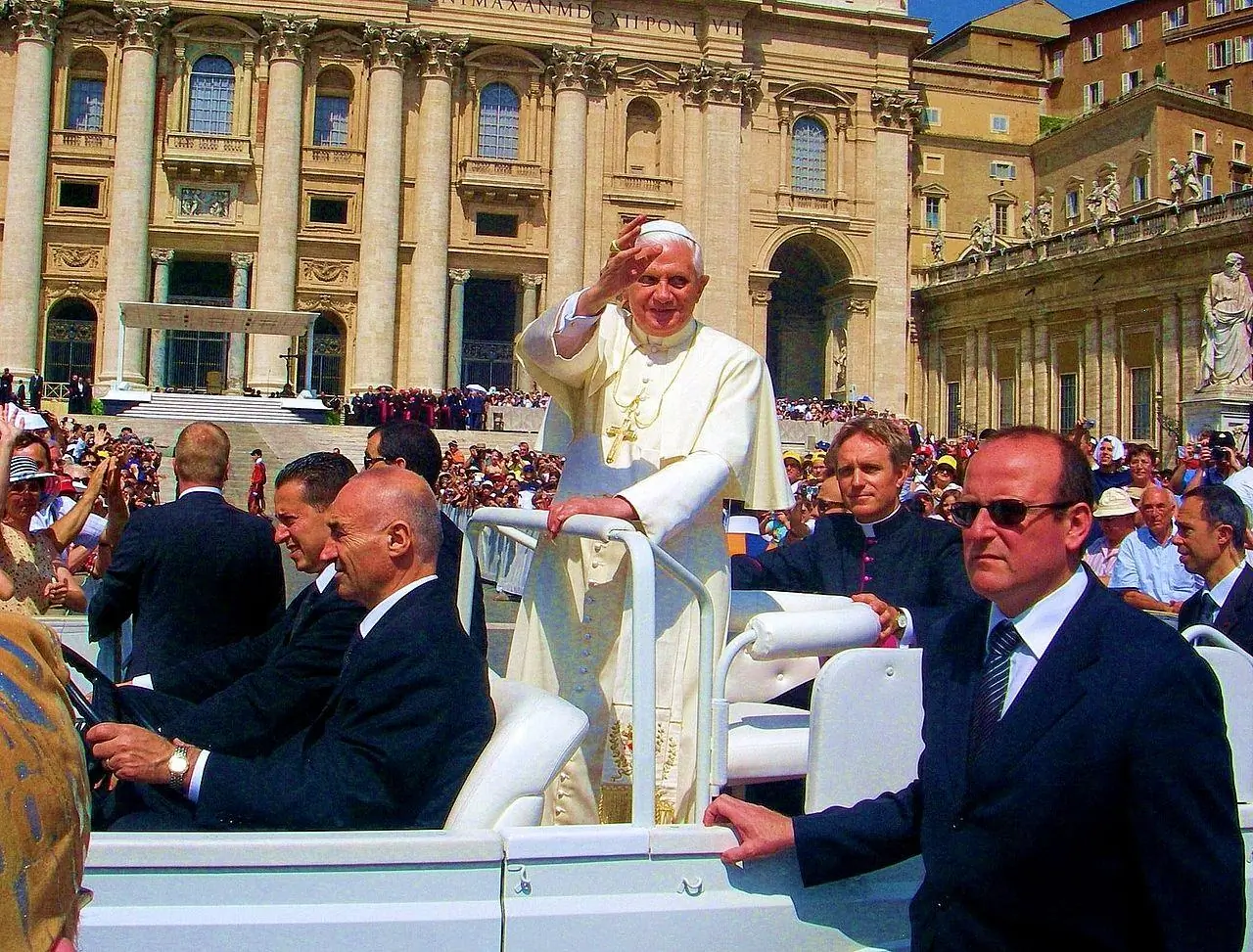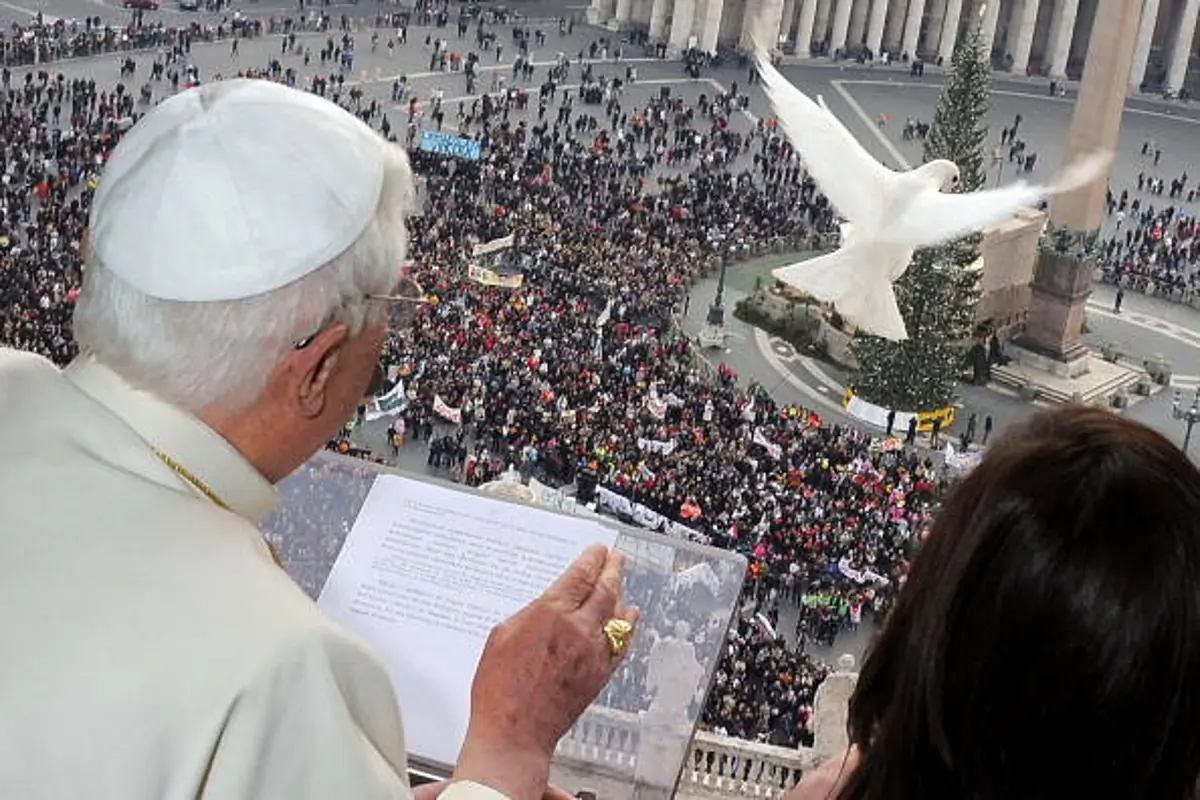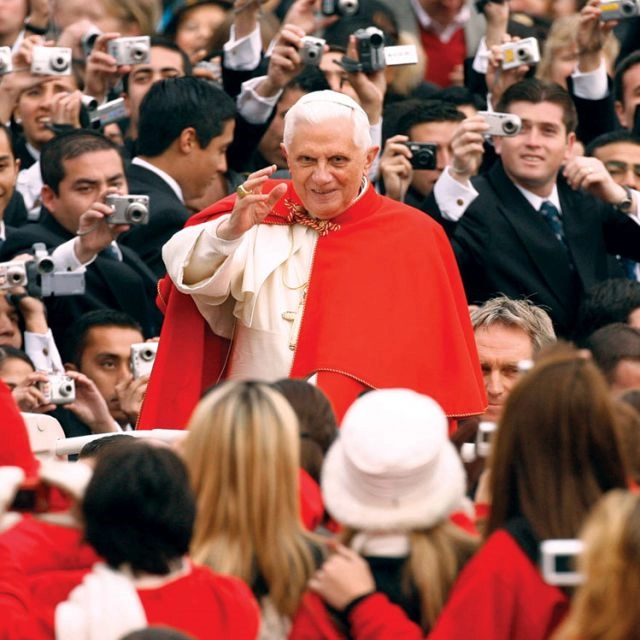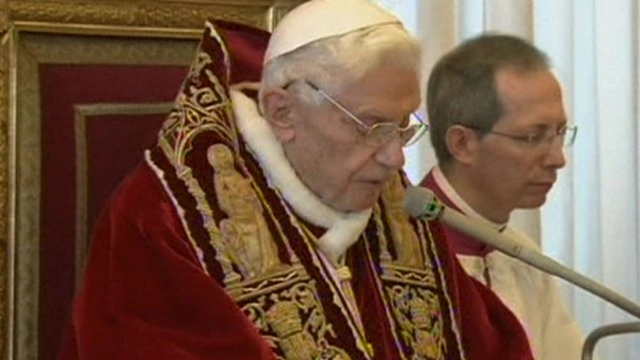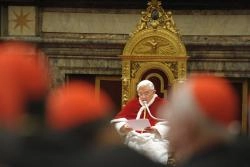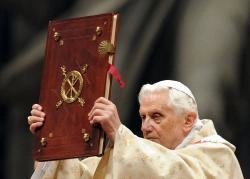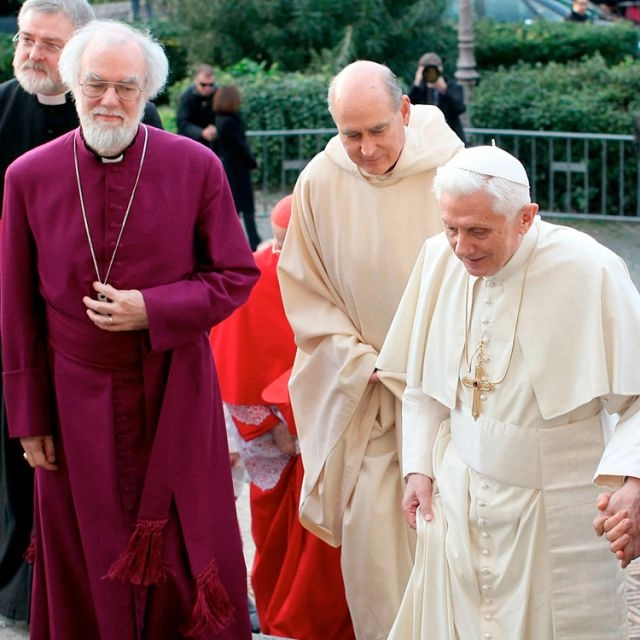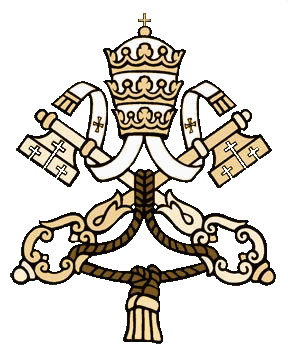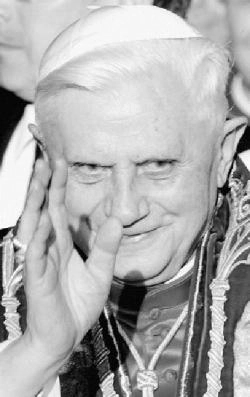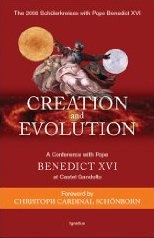- Français
- |
- Booklist
- |
- Week of Prayer
- |
- Links
- Areopagus - a forum for dialogue
- Academic journals
- Acronyms
- Bible tools
- Bibliographies
- Booksellers and publishers
- Churches
- Canadian church headquarters
- Directory of Saskatchewan churches
- Retreat centres
- Saskatchewan church and non-profit agencies
- Ecumenism.net Denominational links
- Anabaptist & Mennonite
- Anglican
- Baptist
- Evangelical
- Independent episcopal
- Lutheran
- Methodist, Wesleyan, and Holiness
- Miscellaneous
- Mormon
- Orthodox (Eastern & Oriental)
- Para-church ministries
- Pentecostal / charismatic
- Presbyterian & Reformed
- Quaker (Society of Friends)
- Roman & Eastern Catholic
- United and uniting
- Documents of Ecumenical Interest
- Ecumenical agencies
- Ecumenical Booklist
- Ecumenical Dialogues
- Glossary
- Human rights
- Inter-religious links
- Justice & peace
- Lectionaries
- Religious news services
- Resource pages
- Search Ecumenism.Net
- |
- Documents
- Ancient & Medieval texts
- Ecumenical Dialogues
- Interreligious
- Anabaptist & Mennonite
- Anglican
- Evangelical
- Lutheran
- Orthodox
- Reformed & Presbyterian
- Roman & Eastern Catholic
- United & Uniting
- Miscellaneous churches
- Canadian Council of Churches (CCC)
- Conference of European Churches (CEC)
- Interchurch Families International Network (IFIN)
- National Council of Churches in Australia (NCCA)
- Lausanne Committee for World Evangelism (LCWE)
- World Council of Churches (WCC)
- Other ecumenical documents
Church traditions
Documents from ecumenical agencies
- |
- Dialogues
- Adventist-Reformed
- African Instituted Churches-Reformed
- Anglican-Lutheran
- Anglican-Orthodox
- Anglican-Reformed
- Anglican-Roman Catholic
- Anglican-United/Uniting
- Baptist-Reformed
- Disciples of Christ-Reformed
- Disciples of Christ-Roman Catholic
- Evangelical-Roman Catholic
- Lutheran-Mennonite
- Lutheran-Mennonite-Roman Catholic
- Lutheran-Reformed
- Lutheran-Roman Catholic
- Mennonite-Reformed
- Mennonite-Roman Catholic
- Methodist-Reformed
- Methodist-Roman Catholic
- Oriental Orthodox-Reformed
- Orthodox-Reformed
- Orthodox-Roman Catholic
- Pentecostal-Reformed
- Prague Consultations
- REC-WARC Consultations
- Roman Catholic-Lutheran-Reformed
- Roman Catholic-Reformed
- Roman Catholic-United Church of Canada
- |
- Quick links
- Canadian Centre for Ecumenism
- Canadian Council of Churches
- Ecumenical Shared Ministries
- Ecumenism in Canada
- Interchurch Families International Network
- International Anglican-Roman Catholic Commission for Unity and Mission
- Kairos: Canadian Ecumenical Justice Initiatives
- North American Academy of Ecumenists
- Prairie Centre for Ecumenism
- Réseau œcuménique justice et paix
- Week of Prayer for Christian Unity
- Women's Interchurch Council of Canada
- World Council of Churches
- |
- Archives
- |
- About us
Archive for tag: Benedict XVI
Archive pour tag : Benedict XVI
One day after his election to the papacy on April 19, 2005, Pope Benedict XVI addressed the College of Cardinals. He affirmed his commitment to the ecumenical agenda of his predecessor, Pope John Paul II, and identified his primary task as the impelling duty “to work tirelessly to rebuild the full and visible unity of all Christ’s followers.” He stated his readiness “to do everything in his power to promote the fundamental cause of ecumenism,” as well as his determination “to encourage every initiative that seems appropriate for promoting contacts and understanding with the representatives of the different Churches and Ecclesial Communities.” At the time of his death on December 31, 2022, tributes from ecumenical partners around the world testified to his fidelity to these commitments made at beginning of his papacy.
… Read more » … lire la suite »

 Permanent link: ecumenism.net/?p=13637
Permanent link: ecumenism.net/?p=13637
Categories: One Body, Opinion • In this article: Benedict XVI, Catholic, dialogue, Joseph Ratzinger, justification by faith, Lutheran

 Lien permanente : ecumenism.net/?p=13637
Lien permanente : ecumenism.net/?p=13637
Catégorie : One Body, Opinion • Dans cet article : Benedict XVI, Catholic, dialogue, Joseph Ratzinger, justification by faith, Lutheran
Pope Emeritus Benedict XVI has died at the age of 95. Vatican spokesman Matteo Bruni communicated the news in a statement, saying, “With sorrow I inform you that the Pope Emeritus, Benedict XVI, passed away today at 9:34 in the Mater Ecclesiae Monastery in the Vatican.” Within hours, messages of condolence were received from around the world, including numerous political and religious leaders. Gathered here are some of the statements from religious leaders.
… Read more » … lire la suite »

 Permanent link: ecumenism.net/?p=13135
Permanent link: ecumenism.net/?p=13135
Categories: Memorials, News • In this article: Benedict XVI

 Lien permanente : ecumenism.net/?p=13135
Lien permanente : ecumenism.net/?p=13135
Catégorie : Memorials, News • Dans cet article : Benedict XVI
The Lutheran World Federation (LWF) joins with Catholics and other faith leaders in mourning the loss of former Pope Benedict XVI, who died on 31 December 2022 at the age of 95. Recalling his deep commitment to the search for reconciliation between the divided Christian churches, LWF General Secretary Rev. Anne Burghardt said: “Pope Benedict XVI was a sharp-minded theologian whose strong academic background shaped his pontificate. We give thanks for his encouragement never to slacken in the ecumenical endeavour and we will gratefully remember his appreciation of the Joint Declaration of Doctrine of Justification that has enabled many advances in Lutheran-Roman Catholic relations.”
… Read more » … lire la suite »

 Permanent link: ecumenism.net/?p=13137
Permanent link: ecumenism.net/?p=13137
Categories: Lutheran World Information • In this article: Benedict XVI

 Lien permanente : ecumenism.net/?p=13137
Lien permanente : ecumenism.net/?p=13137
Catégorie : Lutheran World Information • Dans cet article : Benedict XVI
Dove lovers, rejoice.
Balloons, not doves, were released as a gesture of peace Sunday in St. Peter’s Square, a year after an attack by a seagull and a crow on the symbolic birds sparked protests by animal rights groups.
… Read more » … lire la suite »

 Permanent link: ecumenism.net/?p=13141
Permanent link: ecumenism.net/?p=13141
Categories: News • In this article: Benedict XVI, peace

 Lien permanente : ecumenism.net/?p=13141
Lien permanente : ecumenism.net/?p=13141
Catégorie : News • Dans cet article : Benedict XVI, peace
Last week I invited reflections from the readers of Ecumenism in Canada on the ecumenical significance of the papal resignation. Here are the first of the reflections received:
John H. Armstrong, ACT3 Network, Carol Stream, IL (USA) — While the media discusses what they think about a pope resigning office ecumenical Christians should ask deeper questions rooted in faith, hope and love. I believe Pope Benedict XVI made a courageous decision that demonstrates deep humility. In this decision he has opened the door to deeper conversations about the unity of the whole church. The fuller implications of his decision will not be understood for decades. Historians will likely see this as a significant step into a new world shaped by global realities. Will the papacy be the same in 2050? I doubt it. I have no idea what this means but I do believe history was made by the decision of this humble man, a decision that showed us what serving Christ looks like in a time when true peacemaking and humility could not be more important.
… Read more » … lire la suite »

 Permanent link: ecumenism.net/?p=3036
Permanent link: ecumenism.net/?p=3036
Categories: Opinion • In this article: Benedict XVI, Christian unity, dialogue, ecumenism, papacy, petrine ministry, Ut Unum Sint

 Lien permanente : ecumenism.net/?p=3036
Lien permanente : ecumenism.net/?p=3036
Catégorie : Opinion • Dans cet article : Benedict XVI, Christian unity, dialogue, ecumenism, papacy, petrine ministry, Ut Unum Sint
I invite you to contribute your own reflections to the ‘Ecumenism in Canada” website. A little more than a week has passed since the surprising news that Pope Benedict XVI has decided to resign at the end of February. Now that the initial flurry of news reports have reported the details of his resignation and the expected process of the conclave in March, I invite you to join in a more reflective moment to consider the ecumenical significance of the papal resignation.
In 1995, Pope John Paul II issued his encyclical on commitment to ecumenism, Ut Unum Sint, in which he invited discussion and dialogue about ways in which the petrine ministry might be reformed to more effectively serve as a universal ministry of unity. The resignation of Pope Benedict is one of the most visible reforms of the papacy in recent memory. What is it’s ecumenical significance?
I invite you to write short reflections, 100-300 words, and send them to me at editor [at] ecumenism [dot] net. I will select appropriate reflections to publish on the “Ecumenism in Canada” website. I cannot promise to publish every response, but I will endeavour to publish responses that are focused on the question at hand: What is the ecumenical significance of the papal resignation? I reserve the right to edit responses. Please include your full name, address, and occupation.
Please send your responses by February 28.
… Read more » … lire la suite »

 Permanent link: ecumenism.net/?p=3042
Permanent link: ecumenism.net/?p=3042
Categories: Opinion • In this article: Benedict XVI, Christian unity, dialogue, ecumenism, papacy, petrine ministry, Ut Unum Sint

 Lien permanente : ecumenism.net/?p=3042
Lien permanente : ecumenism.net/?p=3042
Catégorie : Opinion • Dans cet article : Benedict XVI, Christian unity, dialogue, ecumenism, papacy, petrine ministry, Ut Unum Sint
Clarity and charity, the Gospel proclaimed and Jesus at the heart of the Church will always be the legacy of the great teaching Pope who led off the 21st century.
Pope Benedict XVI may have surprised the world by announcing his withdrawal from the See of Peter, but his courageous decision to put the Church and the office of the Pope before any other consideration was absolutely consistent with his character.
“As a Pope he was humble, conscientious, diligent,” wrote theologian Gregory Baum in an e-mail to The Catholic Register. “(He) derived no pleasure from being seen and celebrated.”
… Read more » … lire la suite »

 Permanent link: ecumenism.net/?p=7022
Permanent link: ecumenism.net/?p=7022
Categories: Catholic Register • In this article: Benedict XVI, pope

 Lien permanente : ecumenism.net/?p=7022
Lien permanente : ecumenism.net/?p=7022
Catégorie : Catholic Register • Dans cet article : Benedict XVI, pope
The future of Anglican-Roman Catholic relations is, in part, down to who will succeed Pope Benedict, according to the archbishop of Canterbury’s representative to the Holy See.
Responding to today’s surprise resignation of Pope Benedict XVI, the Very Rev. David Richardson said the implications for Anglican-Roman Catholic relations in the long term “will depend on who is elected to succeed him.”
However, Richardson, who is also director of the Anglican Centre in Rome, said that other relationships continue despite the change in leadership.
… Read more » … lire la suite »

 Permanent link: ecumenism.net/?p=13294
Permanent link: ecumenism.net/?p=13294
Categories: ACNS • In this article: Anglican, Benedict XVI, Catholic, pope

 Lien permanente : ecumenism.net/?p=13294
Lien permanente : ecumenism.net/?p=13294
Catégorie : ACNS • Dans cet article : Anglican, Benedict XVI, Catholic, pope
In a surprise announcement, this morning Pope Benedict XVI informed the cardinals gathered in Consistory that he has decided to resign effective February 28 for health reasons. The resignation apparently surprised even his closest of aides. The last pope to resign was Gregory XII in 1415 during the Council of Constance as a means of resolving the Western Schism. The Vatican expects a conclave will elect the next pope before the end of March. According to the BBC, Benedict XVI is not expected to take part in the conclave to elect his successor. The Vatican spokesman, Fr Federico Lombardi, announced that Benedict would retire to Castel Gandolfo after his resignation. More details are expected in the coming weeks.
… Read more » … lire la suite »

 Permanent link: ecumenism.net/?p=2939
Permanent link: ecumenism.net/?p=2939
Categories: News • In this article: Benedict XVI, Catholic, pope

 Lien permanente : ecumenism.net/?p=2939
Lien permanente : ecumenism.net/?p=2939
Catégorie : News • Dans cet article : Benedict XVI, Catholic, pope
This afternoon at 5:30pm, for the feast of the Conversion of St. Paul, Benedict XVI presided over second Vespers in the Basilica of St. Paul’s Outside-the-Walls. The celebration marked the closure of the 46th Week of Prayer for Christian Unity, which this year had the theme: “What does God require of us?” Many representatives from other Churches and ecclesial communities participated in the celebrations, including Metropolitan-Archbishop Gennadios (Limouris), representing the Ecumenical Patriarchate of Constantinople, and Rev. Richardson, representing the Archbishop of Canterbury. Communion in the same faith is the basis for ecumenism,” the Holy Father said, emphasizing that “God gives us unity as something inseparable from the faith” and that “the profession of baptismal faith in God, the Father and Creator, who has revealed Himself in His Son, Jesus Christ, pouring out the Spirit who gives life and holiness already unites Christians. Without faith―which is first a gift from God, but also the response of human persons―the entire ecumenical movement would be reduced to a type of ‘contract’, to adhere to out of common interest. … The doctrinal questions that still divide us should not be overlooked or minimized. Rather, they should be faced with courage, in a spirit of fraternity and mutual respect. Dialogue, when it reflects the priority of faith, can be open to God’s action with the firm confidence that alone we cannot build unity, but that the Holy Spirit is the one who guides us toward full communion and who allows us to see the spiritual wealth present in the different Churches and ecclesial communities.”
… Read more » … lire la suite »

 Permanent link: ecumenism.net/?p=2996
Permanent link: ecumenism.net/?p=2996
Categories: News • In this article: Benedict XVI, Christian unity, ecumenism, WPCU

 Lien permanente : ecumenism.net/?p=2996
Lien permanente : ecumenism.net/?p=2996
Catégorie : News • Dans cet article : Benedict XVI, Christian unity, ecumenism, WPCU
On Friday, December 21, Pope Benedict XVI addressed the members of the Roman curia, the staff of the numerous Vatican offices, in what has become an annual tradition. The speech is sometimes described as a “State of the Church” address. Regarding dialogue with other religions, Pope Benedict spoke of two fundamental rules: Firstly that dialogue does not aim at conversion, but at understanding. In this respect it differs from evangelization, from mission; Secondly, that accordingly, both parties to the dialogue remain consciously within their identity, which the dialogue does not place in question either for themselves or for the other.”
… Read more » … lire la suite »

 Permanent link: ecumenism.net/?p=2282
Permanent link: ecumenism.net/?p=2282
Categories: News • In this article: Benedict XVI, Catholic, dialogue, interfaith, pope

 Lien permanente : ecumenism.net/?p=2282
Lien permanente : ecumenism.net/?p=2282
Catégorie : News • Dans cet article : Benedict XVI, Catholic, dialogue, interfaith, pope
“Render unto Caesar what belongs to Caesar and to God what belongs to God,” was the response of Jesus when asked about paying taxes. His questioners, of course, were laying a trap for him. They wanted to force him to take sides in the highly-charged political debate about Roman rule in the land of Israel. Yet there was more at stake here: if Jesus really was the long-awaited Messiah, then surely he would oppose the Roman overlords. So the question was calculated to expose him either as a threat to the regime, or a fraud.
… Read more » … lire la suite »

 Permanent link: ecumenism.net/?p=2284
Permanent link: ecumenism.net/?p=2284
Categories: News • In this article: Benedict XVI, pope

 Lien permanente : ecumenism.net/?p=2284
Lien permanente : ecumenism.net/?p=2284
Catégorie : News • Dans cet article : Benedict XVI, pope
Remembering the common roots of the Christianity they share, Roman Catholics and Anglicans should renew their commitments to praying and working for Christian unity, Pope Benedict XVI said.
The Pope and Archbishop Rowan Williams of Canterbury, spiritual leader of the Anglican Communion, held an evening prayer service March 10 at Rome’s Church of St. Gregory on the Caelian Hill, the church from which Pope Gregory the Great sent St. Augustine of Canterbury and his fellow monks to evangelize England in 597.
The service was part of celebrations marking the 1,000th anniversary of the founding of the Camaldolese branch of the Benedictine order. Camaldoli monks and nuns live and pray at the Church of St. Gregory and have an active program of ecumenical contacts.
… Read more » … lire la suite »

 Permanent link: ecumenism.net/?p=7012
Permanent link: ecumenism.net/?p=7012
Categories: CNS • In this article: Anglican, Archbishop of Canterbury, Benedict XVI, Catholic, dialogue, pope, Rowan Williams

 Lien permanente : ecumenism.net/?p=7012
Lien permanente : ecumenism.net/?p=7012
Catégorie : CNS • Dans cet article : Anglican, Archbishop of Canterbury, Benedict XVI, Catholic, dialogue, pope, Rowan Williams
Lutheran Bishop Johannes Friedrich has said that the Pope’s visit to the Augustinian monastery at Erfurt on his visit to Germany last year “cannot be rated highly enough”. The former Bishop of Bavaria was writing in the German Protestant monthly Chrismon about the papal visit to Germany’s Protestant heartland last year. The visit came amid
… Read more » … lire la suite »

 Permanent link: ecumenism.net/?p=6744
Permanent link: ecumenism.net/?p=6744
Categories: Tablet • In this article: 2017, Benedict XVI, Catholic, Lutheran, Reformation, Walter Kasper

 Lien permanente : ecumenism.net/?p=6744
Lien permanente : ecumenism.net/?p=6744
Catégorie : Tablet • Dans cet article : 2017, Benedict XVI, Catholic, Lutheran, Reformation, Walter Kasper
Here is a translation of the homily Benedict XVI gave Wednesday evening at Vespers on the feast of the Conversion of St. Paul. The celebration closed the annual Week of Prayer for Christian Unity.
… Read more » … lire la suite »

 Permanent link: ecumenism.net/?p=2223
Permanent link: ecumenism.net/?p=2223
Categories: Opinion • In this article: 2012, Benedict XVI, communion ecclesiology, WPCU

 Lien permanente : ecumenism.net/?p=2223
Lien permanente : ecumenism.net/?p=2223
Catégorie : Opinion • Dans cet article : 2012, Benedict XVI, communion ecclesiology, WPCU
The head of the German Church’s Ecumenical Commission has said that he believes the Pope “rehabilitated” the reformer, Martin Luther, during his visit to the country last month, write Jonathan Luxmoore and Christa Pongratz-Lippitt. Speaking on 23 September to the council of the Evangelische Kirche in Deutschland, in the Augustinian convent in Erfurt where Luther
… Read more » … lire la suite »

 Permanent link: ecumenism.net/?p=6746
Permanent link: ecumenism.net/?p=6746
Categories: Tablet • In this article: Benedict XVI, Catholic, ecumenism, Lutheran, Martin Luther

 Lien permanente : ecumenism.net/?p=6746
Lien permanente : ecumenism.net/?p=6746
Catégorie : Tablet • Dans cet article : Benedict XVI, Catholic, ecumenism, Lutheran, Martin Luther
Pope Benedict XVI’s third visit to Germany last week was billed as the 84-year-old pontiff’s latest effort to help convince people in highly secularised Europe that their society would be better and more human if God were at its centre. He won high praise for a deeply philosophical paper given to the Bundestag in Berlin on the foundations for a free state of law (see page 10). In that address, he said it was “urgent” to start a “public debate” on the necessity of retrieving the natural law tradition in developing legislation. As with his speech at Westminster Hall a year ago, the Pope was hailed for reaching across the political and religious divide of Germany’s parliament and its intellectual class.
… Read more » … lire la suite »

 Permanent link: ecumenism.net/?p=6742
Permanent link: ecumenism.net/?p=6742
Categories: Tablet • In this article: Benedict XVI, Society of St. Pius X

 Lien permanente : ecumenism.net/?p=6742
Lien permanente : ecumenism.net/?p=6742
Catégorie : Tablet • Dans cet article : Benedict XVI, Society of St. Pius X
As the Bishop of Rome, it is deeply moving for me to be meeting you here in the ancient Augustinian convent in Erfurt. As we have just heard, this is where Luther studied theology. This is where he was ordained a priest. Against his father’s wishes, he did not continue the study of Law, but instead he studied theology and set off on the path towards priesthood in the Order of Saint Augustine. And on this path, he was not simply concerned with this or that. What constantly exercised him was the question of God, the deep passion and driving force of his whole life’s journey. “How do I receive the grace of God?”: this question struck him in the heart and lay at the foundation of all his theological searching and inner struggle. For Luther theology was no mere academic pursuit, but the struggle for oneself, which in turn was a struggle for and with God.
… Read more » … lire la suite »

 Permanent link: ecumenism.net/?p=6717
Permanent link: ecumenism.net/?p=6717
Categories: Tablet • In this article: Benedict XVI, Catholic, ecumenism, Lutheran, Martin Luther

 Lien permanente : ecumenism.net/?p=6717
Lien permanente : ecumenism.net/?p=6717
Catégorie : Tablet • Dans cet article : Benedict XVI, Catholic, ecumenism, Lutheran, Martin Luther
Pope Benedict XVI has intervened personally to demand more time for ecumenical talks with the Protestant Churches when he visits Germany in September. In a highly unusual move he has written directly to the leader of the Protestant Churches, Chairman Nikolaus Schneider, expressing dissatisfaction with the brevity of the session allotted for their meeting. Barely
… Read more » … lire la suite »

 Permanent link: ecumenism.net/?p=6740
Permanent link: ecumenism.net/?p=6740
Categories: Tablet • In this article: Benedict XVI, Catholic, ecumenism, Lutheran

 Lien permanente : ecumenism.net/?p=6740
Lien permanente : ecumenism.net/?p=6740
Catégorie : Tablet • Dans cet article : Benedict XVI, Catholic, ecumenism, Lutheran
Last week, the Vatican published a new papal letter from Benedict XVI entitled Verbum Domini, the Word of the Lord. Technically called an “apostolic exhortation,” this letter is the final contribution from the 2008 synod. At over 190 pages in the English text, the new letter is a “must read” for all ecumenists.
… Read more » … lire la suite »

 Permanent link: ecumenism.net/?p=1611
Permanent link: ecumenism.net/?p=1611
Categories: Documents • In this article: Benedict XVI, pope, Scripture

 Lien permanente : ecumenism.net/?p=1611
Lien permanente : ecumenism.net/?p=1611
Catégorie : Documents • Dans cet article : Benedict XVI, pope, Scripture
You have spoken, Your Grace, of the historic meeting that took place, almost thirty years ago, between two of our predecessors – Pope John Paul the Second and Archbishop Robert Runcie – in Canterbury Cathedral. There, in the very place where Saint Thomas of Canterbury bore witness to Christ by the shedding of his blood, they prayed together for the gift of unity among the followers of Christ. We continue today to pray for that gift, knowing that the unity Christ willed for his disciples will only come about in answer to prayer, through the action of the Holy Spirit, who ceaselessly renews the Church and guides her into the fullness of truth.
… Read more » … lire la suite »

 Permanent link: ecumenism.net/?p=6726
Permanent link: ecumenism.net/?p=6726
Categories: Tablet • In this article: Anglican, Benedict XVI, Catholic, Church of England, Rowan Williams

 Lien permanente : ecumenism.net/?p=6726
Lien permanente : ecumenism.net/?p=6726
Catégorie : Tablet • Dans cet article : Anglican, Benedict XVI, Catholic, Church of England, Rowan Williams
Fifty years after the first meeting of a Pope and an Archbishop of Canterbury in modern times — that of Pope John XXIII and Archbishop Geoffrey Fisher, in December 1960 — Pope Benedict XVI paid a fraternal visit to Archbishop Rowan Williams.
… Read more » … lire la suite »

 Permanent link: ecumenism.net/?p=641
Permanent link: ecumenism.net/?p=641
Categories: Communiqué, Dialogue • In this article: Anglican, Archbishop of Canterbury, Benedict XVI, Catholic, Christian unity, Rowan Williams

 Lien permanente : ecumenism.net/?p=641
Lien permanente : ecumenism.net/?p=641
Catégorie : Communiqué, Dialogue • Dans cet article : Anglican, Archbishop of Canterbury, Benedict XVI, Catholic, Christian unity, Rowan Williams
Pope & Archbishop of Canterbury call for common Christian witness
Pope Benedict XVI and Anglican Archbishop Rowan Williams of Canterbury knelt together before the tomb of an 11th-century Christian king after affirming the need for Catholics and Anglicans to give a united witness to society. St. Edward the Confessor, who is buried in the Anglicans’ Westminster Abbey, reigned five centuries before English Christians became divided.
The pope and the primate of the Church of England paid homage together to the Christian king Sept. 17 at the end of an afternoon that included public speeches, a 30-minute private meeting and a joint ecumenical prayer service in Westminster Abbey. Archbishop Williams welcomed Pope Benedict as the first pope ever to visit Westminster Abbey, which was home to a community of Catholic Benedictine monks until 1540 when King Henry VIII dissolved the monastic community.
… Read more » … lire la suite »

 Permanent link: ecumenism.net/?p=640
Permanent link: ecumenism.net/?p=640
Categories: CNS, Communiqué, Dialogue • In this article: Anglican, Archbishop of Canterbury, Benedict XVI, Catholic, Christian unity, Rowan Williams, witness

 Lien permanente : ecumenism.net/?p=640
Lien permanente : ecumenism.net/?p=640
Catégorie : CNS, Communiqué, Dialogue • Dans cet article : Anglican, Archbishop of Canterbury, Benedict XVI, Catholic, Christian unity, Rowan Williams, witness
Benedict XVI: Dialogue and Collaboration among Different Religions
At midday today in St. Mary’s University College at Twickenham, the Holy Father met with leaders from the main Christian confessions and from other religions present in the United Kingdom: Jews, Muslims, Hindus and Sikhs.
… Read more » … lire la suite »

 Permanent link: ecumenism.net/?p=638
Permanent link: ecumenism.net/?p=638
Categories: Dialogue, News • In this article: Benedict XVI, interfaith

 Lien permanente : ecumenism.net/?p=638
Lien permanente : ecumenism.net/?p=638
Catégorie : Dialogue, News • Dans cet article : Benedict XVI, interfaith
This morning the Vatican announced the publication of the apostolic constitution enacting the canonical provisions for new Anglican ordinariates. As well, the Congregation for the Doctrine of the Faith issued “complementary norms” to accompany the apostolic constitution.
… continued
… Read more » … lire la suite »

 Permanent link: ecumenism.net/?p=613
Permanent link: ecumenism.net/?p=613
Categories: Documents, Vatican News • In this article: Anglican, Benedict XVI, Catholic

 Lien permanente : ecumenism.net/?p=613
Lien permanente : ecumenism.net/?p=613
Catégorie : Documents, Vatican News • Dans cet article : Anglican, Benedict XVI, Catholic
Last November, attention turned once again to comments made by Pope Benedict XVI, this time on dialogue with Islam. Precisely as the Vatican was intensifying efforts to open dialogues with Islam on ethical and other practical issues, a book was published in Italy by Marcello Pera that contained a forward written by the pope. In this text, the pope commended Pera’s argument that interreligious dialogue is not strictly possible. The book, entitled “Why We Must Call Ourselves Christian” was an argument for the indispensably Christian character of Europe. Prior to his election as pope, Cardinal Ratzinger had co-authored another book with Pera about Europe’s identity, and so it is not a great surprise that he would write a forward for another book on the same subject by his academic colleague.
… continued
… Read more » … lire la suite »

 Permanent link: ecumenism.net/?p=564
Permanent link: ecumenism.net/?p=564
Categories: Dialogue • In this article: Benedict XVI, Catholic, interfaith, Islam, Judaism, Vatican

 Lien permanente : ecumenism.net/?p=564
Lien permanente : ecumenism.net/?p=564
Catégorie : Dialogue • Dans cet article : Benedict XVI, Catholic, interfaith, Islam, Judaism, Vatican
Pope on Shoah: Never again may violence humiliate the dignity of man!
In his weekly audience Pope Benedict categorically condemned all attempts to deny the Holocaust and explained the reasons for the lifting of the excommunication of four bishops from the fraternity of St. Pius X. … Pope Benedict’s thoughts then turned to the Shoah, the memorial of which was celebrated this week. He said “the memories and images of my many visits to Auschwitz come back to me in these days, a death camp in which blind racial and religious hatred led to the ferocious extermination of millions of Jews and other innocent victims”.
… Read more » … lire la suite »

 Permanent link: ecumenism.net/?p=547
Permanent link: ecumenism.net/?p=547
Categories: Vatican News • In this article: Benedict XVI, Jewish-Christian relations, Shoah, Society of St. Pius X

 Lien permanente : ecumenism.net/?p=547
Lien permanente : ecumenism.net/?p=547
Catégorie : Vatican News • Dans cet article : Benedict XVI, Jewish-Christian relations, Shoah, Society of St. Pius X
Pope Benedict XVI says he has “full and unquestionable solidarity” with Jewish people and he has warned against any form of Holocaust denial. The Pope’s statement comes after outrage at his recent reinstatement of an excommunicated bishop, who has said the genocide of Jews in gas chambers never took place.
… Read more » … lire la suite »

 Permanent link: ecumenism.net/?p=13493
Permanent link: ecumenism.net/?p=13493
Categories: ENI • In this article: Benedict XVI, Jewish-Christian relations, Shoah, Society of St. Pius X

 Lien permanente : ecumenism.net/?p=13493
Lien permanente : ecumenism.net/?p=13493
Catégorie : ENI • Dans cet article : Benedict XVI, Jewish-Christian relations, Shoah, Society of St. Pius X
Webeditor’s note: The title of this article was changed to more accurately reflect the focus of the papal address. The original title was “Pope Clarifies Luther’s Idea of Justification”. The Vatican Information Service article bears the title “St. Paul: Justification by Christ’s Love”.
[Vatican City • Zenit.org] Benedict XVI says Martin Luther’s doctrine on justification is correct, if faith “is not opposed to charity.”
The Pope said this today during the general audience dedicated to another reflection on St. Paul. This time, the Holy Father considered the Apostle’s teaching on justification.
He noted that Paul’s conversion experience on the road to Damascus “changed his life radically: He began to regard all his merits, achievements of a most honest religious career, as ‘loss’ in face of the sublimity of knowledge of Jesus Christ.”
“It is precisely because of this personal experience of the relationship with Jesus that Paul places at the center of his Gospel an irreducible opposition between two alternative paths to justice: one based on the works of the law, the other founded on the grace of faith in Christ,” the Pontiff explained. “The alternative between justice through the works of the law and justice through faith in Christ thus becomes one of the dominant themes that runs through his letters.”
What is law
But in order to understand this Pauline teaching, Benedict XVI affirmed, “we must clarify what is the ‘law’ from which we have been freed and what are those ‘works of the law’ that do not justify.”
He explained: “Already in the community of Corinth there was the opinion, which will return many times in history, which consisted in thinking that it was a question of the moral law, and that Christian freedom consisted therefore in being free from ethics. […] It is obvious that this interpretation is erroneous: Christian liberty is not libertinism; the freedom of which St. Paul speaks is not freedom from doing good.”
Instead, the Pope said, the law to which Paul refers is the “collection of behaviors extending from an ethical foundation to the ritual and cultural observances that substantially determined the identity of the just man — particularly circumcision, the observance regarding pure food and general ritual purity, the rules regarding observance of the Sabbath, etc.”
These observances served to protect Jewish identity and faith in God; they were “a defense shield that would protect the precious inheritance of the faith,” he remarked.
But, the Holy Father continued, at the moment of Paul’s encounter with Christ, the Apostle “understood that with Christ’s resurrection the situation had changed radically.”
“The wall — so says the Letter to the Ephesians — between Israel and the pagans was no longer necessary,” he said. “It is Christ who protects us against polytheism and all its deviations; it is Christ who unites us with and in the one God; it is Christ who guarantees our true identity in the diversity of cultures; and it is he who makes us just. To be just means simply to be with Christ and in Christ. And this suffices. Other observances are no longer necessary.”
And it is because of this, the Bishop of Rome continued, that Luther’s expression “by faith alone” is true “if faith is not opposed to charity, to love. Faith is to look at Christ, to entrust oneself to Christ, to be united to Christ, to be conformed to Christ, to his life. And the form, the life of Christ, is love; hence, to believe is to be conformed to Christ and to enter into his love.”
“Paul knows,” he added, “that in the double love of God and neighbor the whole law is fulfilled. Thus the whole law is observed in communion with Christ, in faith that creates charity. We are just when we enter into communion with Christ, who is love.”
• Pope Benedict XVI’s address at the General Audience of Wednesday, November 19, 2008.
… Read more » … lire la suite »

 Permanent link: ecumenism.net/?p=524
Permanent link: ecumenism.net/?p=524
Categories: News • In this article: Benedict XVI, Martin Luther

 Lien permanente : ecumenism.net/?p=524
Lien permanente : ecumenism.net/?p=524
Catégorie : News • Dans cet article : Benedict XVI, Martin Luther
Aujourd’hui est publiée la seconde Encyclique de Benoît XVI, Spe Salvi, qui comprend une introduction suivie de huit chapitres, et qui s’ouvre passage de l’Epître aux romains où Paul dit que nous avons été sauvés dans l’espérance.
… Read more » … lire la suite »

 Permanent link: ecumenism.net/?p=390
Permanent link: ecumenism.net/?p=390
Categories: News • In this article: Benedict XVI, Catholic, encyclicals

 Lien permanente : ecumenism.net/?p=390
Lien permanente : ecumenism.net/?p=390
Catégorie : News • Dans cet article : Benedict XVI, Catholic, encyclicals
Benedict XVI’s second Encyclical, “Spe Salvi” which is dedicated to the theme of Christian hope, was published today. The document – which has an introduction and eight chapters – begins with a quote from the Letter of St. Paul to the Romans: “spe salvi facti sumus” (in hope we are saved).
… Read more » … lire la suite »

 Permanent link: ecumenism.net/?p=389
In this article: Benedict XVI, Catholic, encyclicals, hope
Permanent link: ecumenism.net/?p=389
In this article: Benedict XVI, Catholic, encyclicals, hope

 Lien permanente : ecumenism.net/?p=389
Dans cet article : Benedict XVI, Catholic, encyclicals, hope
Lien permanente : ecumenism.net/?p=389
Dans cet article : Benedict XVI, Catholic, encyclicals, hope
On Saturday, Pope Benedict XVI issued a motu proprio entitled Summorum Pontificum, on the use of the 1962 Latin Mass. The document has been widely expected for some months now.
… Read more » … lire la suite »

 Permanent link: ecumenism.net/?p=334
Permanent link: ecumenism.net/?p=334
Categories: Documents, News • In this article: Benedict XVI, Catholic, eucharist

 Lien permanente : ecumenism.net/?p=334
Lien permanente : ecumenism.net/?p=334
Catégorie : Documents, News • Dans cet article : Benedict XVI, Catholic, eucharist
On Wednesday April 11, Pope Benedict XVI published a new book in German on the subject of creation and evolution. The book apparently arises out of the Schülerkreis, a group of his graduate students that continue to meet with him each fall. The annual gatherings have attracted a great deal of attention since Benedict was elected pope, particularly because the participants — each a former student of Benedict — represent some of the most well-known and highly-regarded theologians in Germany and around the world. In 2006 the gathering was held at Castel Gandolfo on the subject of creation and evolution.
It should be remembered that, in his 1950 encyclical Humanae Generis, Pope Pius XII taught that the “hypothesis” of evolution does not conflict with Catholic faith so long as it does not deny “that the spiritual soul is immediately created by God.” In 1996, John Paul II went further and stated that new knowledge leads to the recognition that the theory of evolution is more than an hypothesis. He pointed out, as many biologists would also insist, that there are “theories” of evolution rather than one theory.
… Read more » … lire la suite »

 Permanent link: ecumenism.net/?p=311
Permanent link: ecumenism.net/?p=311
Categories: News • In this article: Benedict XVI, books, creation, evolution, Joseph Ratzinger

 Lien permanente : ecumenism.net/?p=311
Lien permanente : ecumenism.net/?p=311
Catégorie : News • Dans cet article : Benedict XVI, books, creation, evolution, Joseph Ratzinger
Open Letter to His Holiness Pope Benedict XVI by 38 Leading Muslim Scholars and Leaders.
In an unprecedented move, an open letter signed by 38 leading Muslim religious scholars and leaders around the world was sent to Pope Benedict XVI on Oct. 12, 2006. The letter, which is the outcome of a joint effort, was signed by top religious authorities. All the eight schools of thought and jurisprudence in Islam are represented by the signatories, including a woman scholar. In this respect the letter is unique in the history of interfaith relations.
The letter was sent, in a spirit of goodwill, to respond to some of the remarks made by the Pope during his lecture at the University of Regensburg on Sept. 12, 2006. The letter tackles the main substantive issues raised in his treatment of a debate between the medieval Emperor Manuel II Paleologus and an “educated Persian”, including reason and faith; forced conversion; “jihad” vs. “holy war”; and the relationship between Christianity and Islam. They engage the Pope on an intellectual level concerning these crucial topics–which go well beyond the controversial quotation of the emperor–pointing out what they see as mistakes and oversimplifications in the Pope’s own remarks about Islamic belief and practice.
… Read more » … lire la suite »

 Permanent link: ecumenism.net/?p=273
Permanent link: ecumenism.net/?p=273
Categories: Dialogue, Documents • In this article: Benedict XVI, interfaith, Islam, Joseph Ratzinger, statements

 Lien permanente : ecumenism.net/?p=273
Lien permanente : ecumenism.net/?p=273
Catégorie : Dialogue, Documents • Dans cet article : Benedict XVI, interfaith, Islam, Joseph Ratzinger, statements
By Nicholas Jesson In his address to a gathering of ecumenical leaders in Warsaw on May 25, Pope Benedict XVI has expressed strong support for pastoral care of interchurch families. Speaking to the Polish Council for Ecumenism and leaders of other religious groups, Benedict encouraged the work of a bilateral commission of the Catholic bishops’ conference
… Read more » … lire la suite »

 Permanent link: ecumenism.net/?p=234
Permanent link: ecumenism.net/?p=234
Categories: News • In this article: Benedict XVI, Christian unity, interchurch families, marriage, pope

 Lien permanente : ecumenism.net/?p=234
Lien permanente : ecumenism.net/?p=234
Catégorie : News • Dans cet article : Benedict XVI, Christian unity, interchurch families, marriage, pope
“Benedict XVI and the Future of Interreligious Theology” is the subject of a talk by Francis Clooney, S.J., at 8 p.m., March 24, 2006 at Sam Sorbara Auditorium in Brennan Hall, 81 St Mary Street, Toronto. The evening is sponsored by the Social Sciences and Humanities Research Council of Canada in collaboration with the University of Toronto’s Centre for the Study of Religion, Regis College, and the University of St Michael’s College. For more information call (416) 926-7115 or (416) 926-1300 ext 3317.

 Permanent link: ecumenism.net/?p=215
Permanent link: ecumenism.net/?p=215
Categories: News • In this article: Benedict XVI, events, interfaith, Joseph Ratzinger, theology

 Lien permanente : ecumenism.net/?p=215
Lien permanente : ecumenism.net/?p=215
Catégorie : News • Dans cet article : Benedict XVI, events, interfaith, Joseph Ratzinger, theology
“After the first few months of the new pontificate, the general impression is that no one within the Church is seriously criticizing the central theses – philosophical and theological – of Benedict XVI’s preaching. But that’s not the way it is. One Catholic philosopher has disputed one of the main points of Joseph Ratzinger’s thought: the one dealing with the natural law and relativism. The philosopher is Dario Antiseri, a professor of social sciences methodology at the Free International University of Social Studies in Rome.”
The above comes from Sandro Magister, an Italian journalist. The full text can be found at www.chiesa.espressonline.it. Magister’s article includes a translation of a major piece of Dario Antiseri’s original journal article.
… Read more » … lire la suite »

 Permanent link: ecumenism.net/?p=170
Permanent link: ecumenism.net/?p=170
Categories: News • In this article: Benedict XVI, Catholic

 Lien permanente : ecumenism.net/?p=170
Lien permanente : ecumenism.net/?p=170
Catégorie : News • Dans cet article : Benedict XVI, Catholic
Papal Reflections on Marriage and the Family
I found this article on the Vatican Information Service about Pope Benedict’s comments at a Rome congress on “The Family and the Christian Community.” I think that he has some positive affirmations to make about families, but I find it interesting that as I was trying to attend to the positives, he kept turning to the negatives. So, for example, he speaks about marriage but ends the section by cautioning about “pseudo-marriage” and divorce.
I wonder whether this gives us some insight into Benedict’s character, or at least some insight into his attitude towards married life. He ends his comments by calling for more vocations to the priesthood and religious life. That’s not exactly a rousing endorsement of marriage.
We should remember that Benedict’s favourite theologian is Augustine of Hippo, who had very similar fears about marriage. It is good and natural in theory, but a risky venture that might imperil your salvation. One is better off avoiding it altogether.
… Read more » … lire la suite »

 Permanent link: ecumenism.net/?p=138
Permanent link: ecumenism.net/?p=138
Categories: Vatican News • In this article: Benedict XVI, family, marriage

 Lien permanente : ecumenism.net/?p=138
Lien permanente : ecumenism.net/?p=138
Catégorie : Vatican News • Dans cet article : Benedict XVI, family, marriage
Geneva — In congratulating the newly-elected pope, World Council of Churches (WCC) general secretary Rev. Dr. Samuel Kobia prayed for “renewed commitment” to “ecumenical openess” and “a dialogue of conversion.” Describing Benedict XVI as a man “known for his theological integrity and ecclesial loyalty, his evangelical simplicity and pastoral sensitivity,” Kobia expressed his hope that his
… Read more » … lire la suite »

 Permanent link: ecumenism.net/?p=129
Permanent link: ecumenism.net/?p=129
Categories: News • In this article: Benedict XVI, Joseph Ratzinger, Samuel Kobia, WCC

 Lien permanente : ecumenism.net/?p=129
Lien permanente : ecumenism.net/?p=129
Catégorie : News • Dans cet article : Benedict XVI, Joseph Ratzinger, Samuel Kobia, WCC

